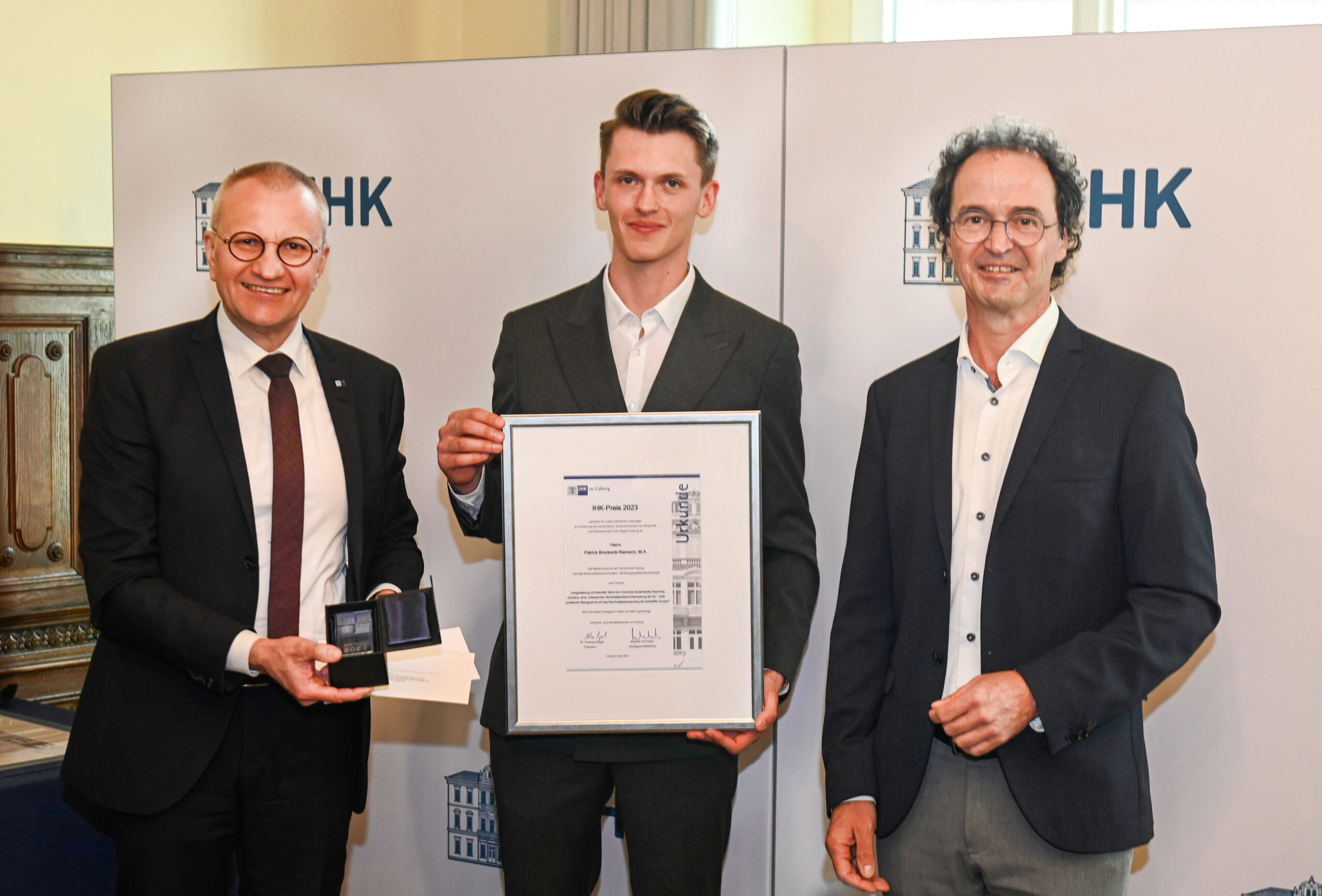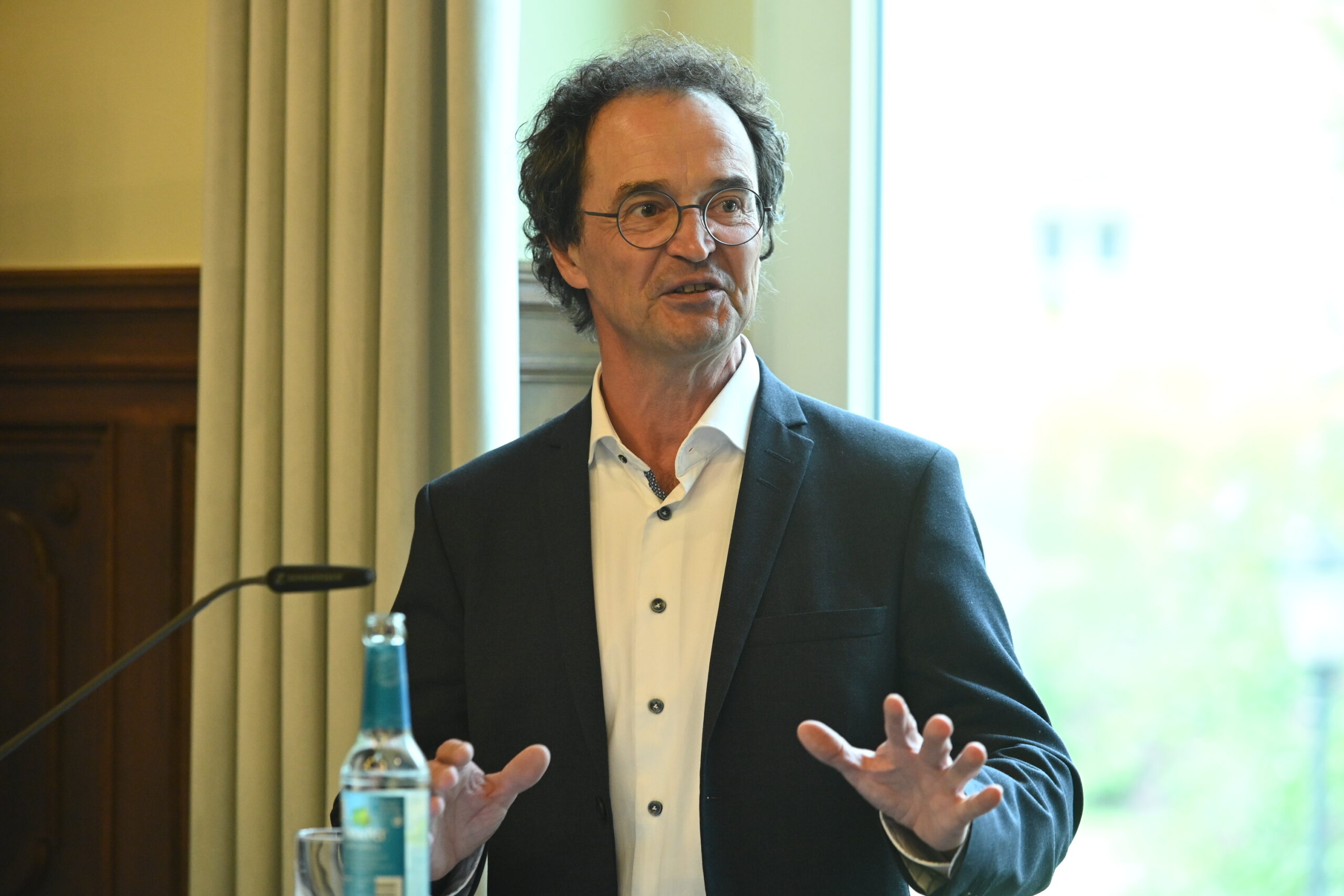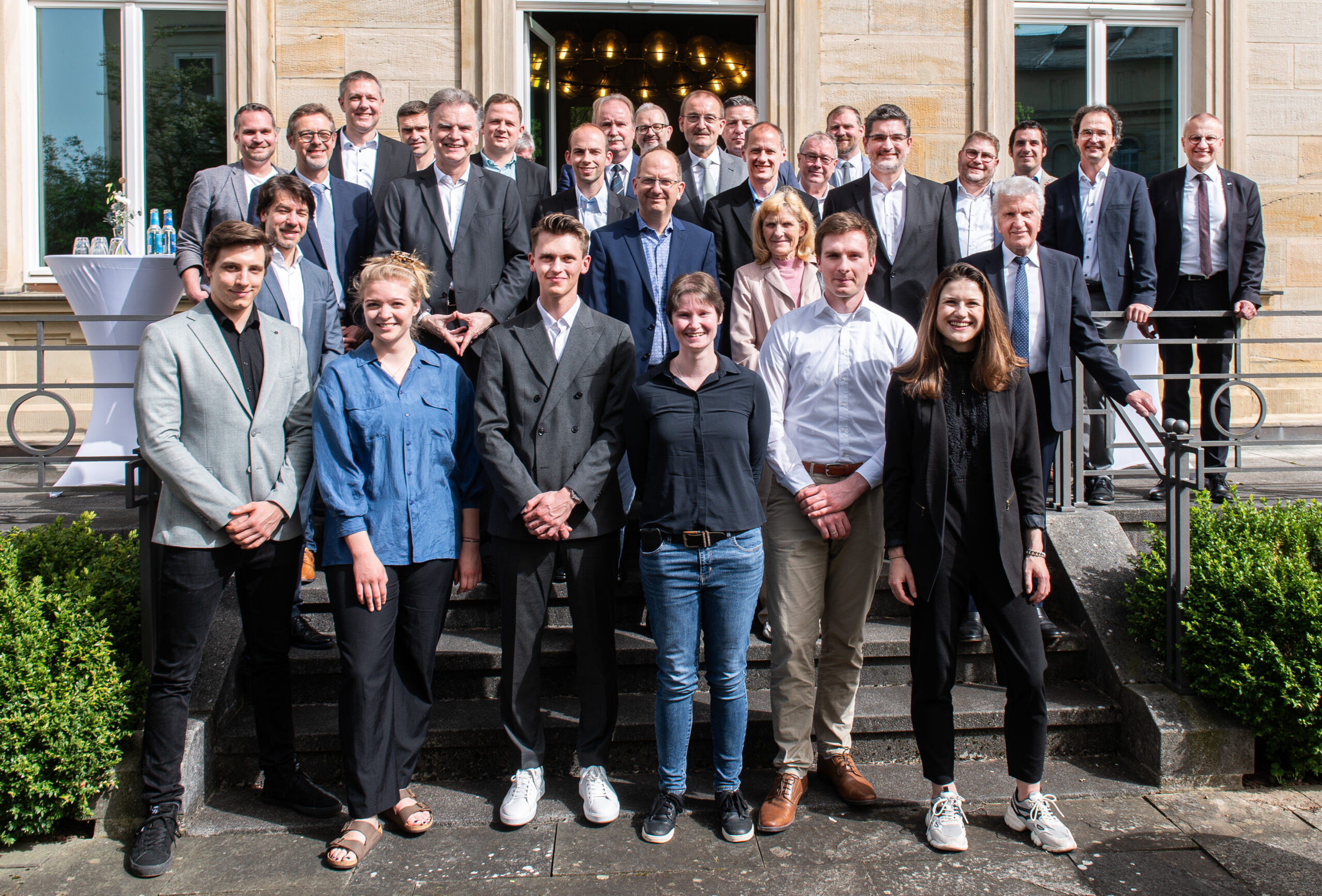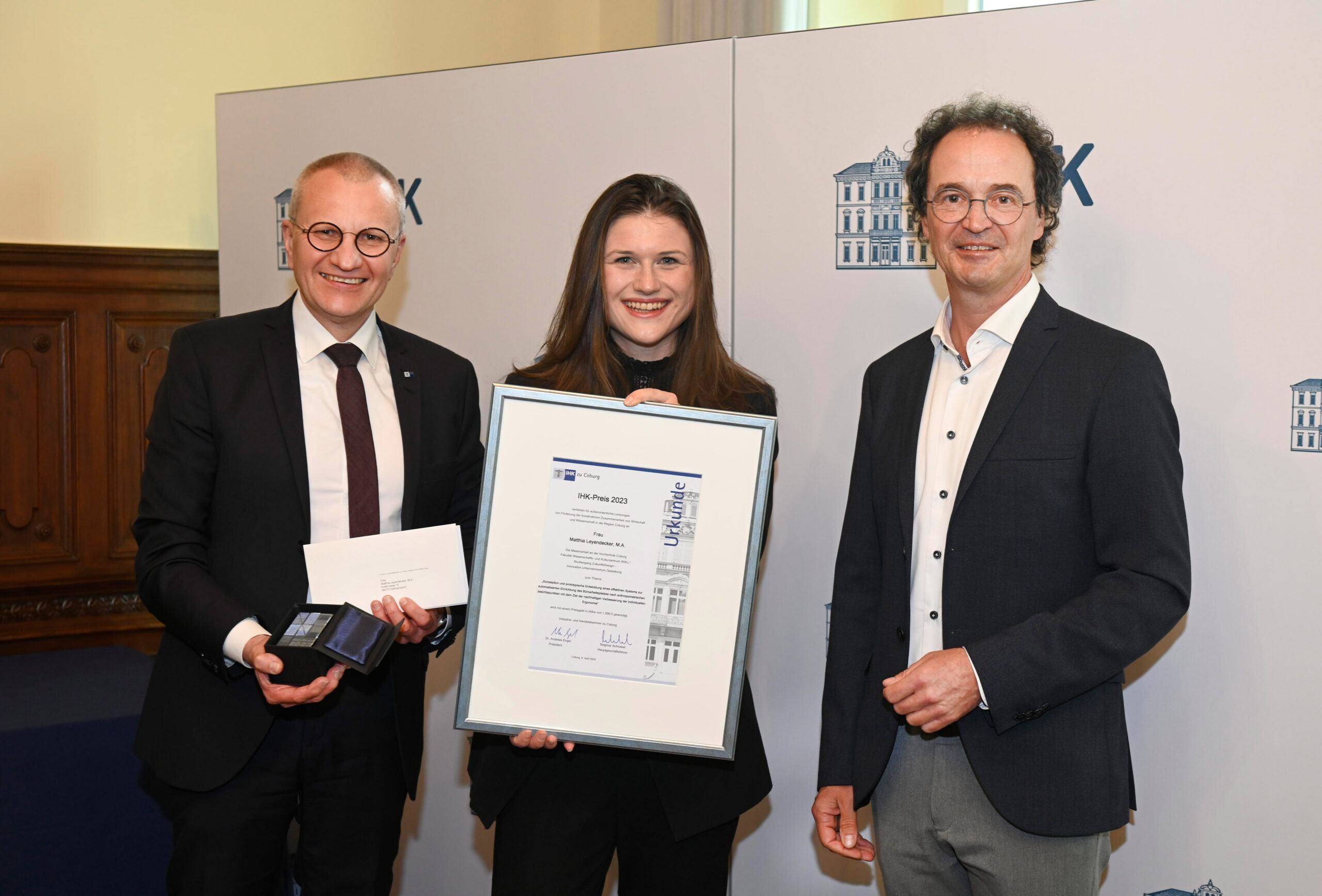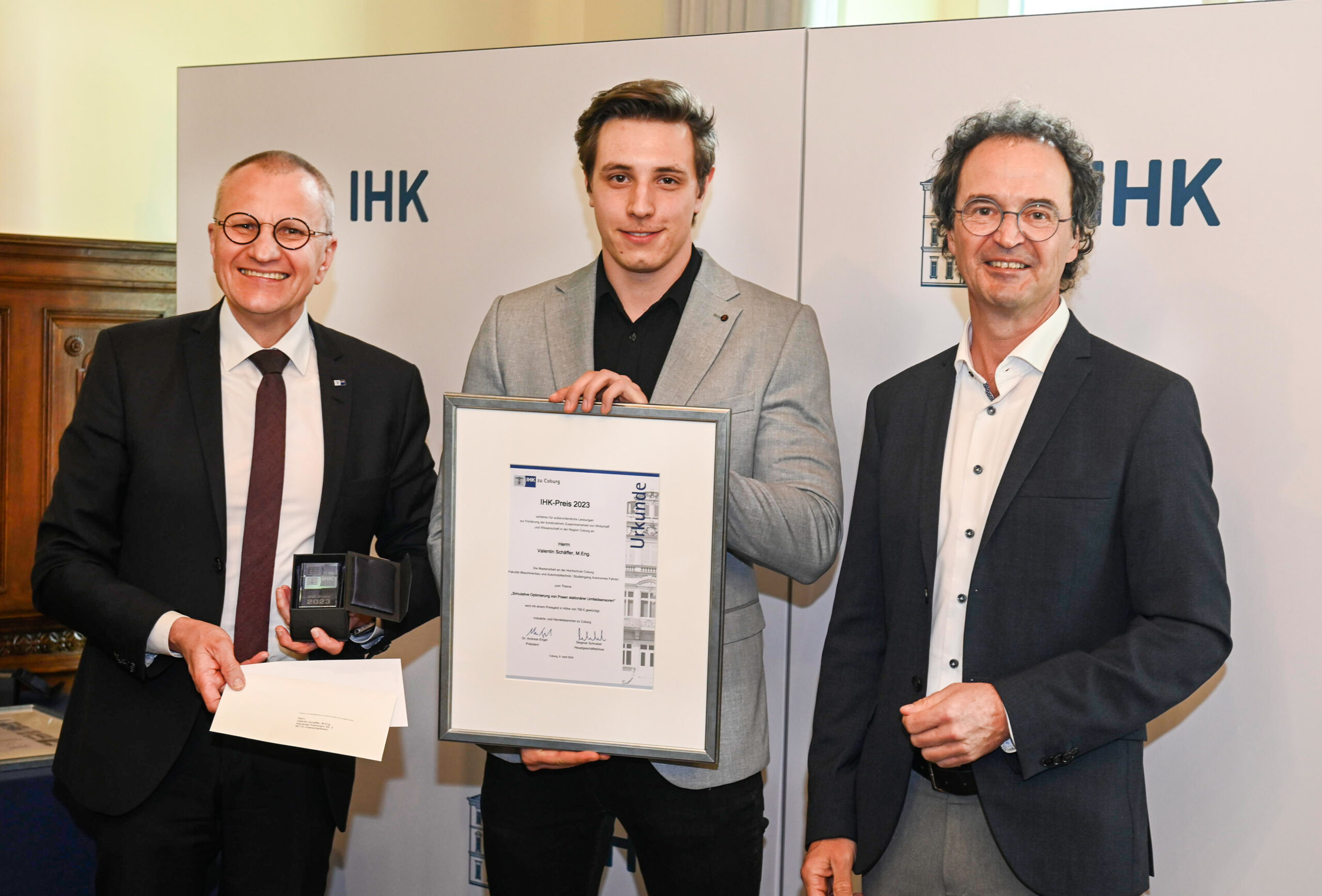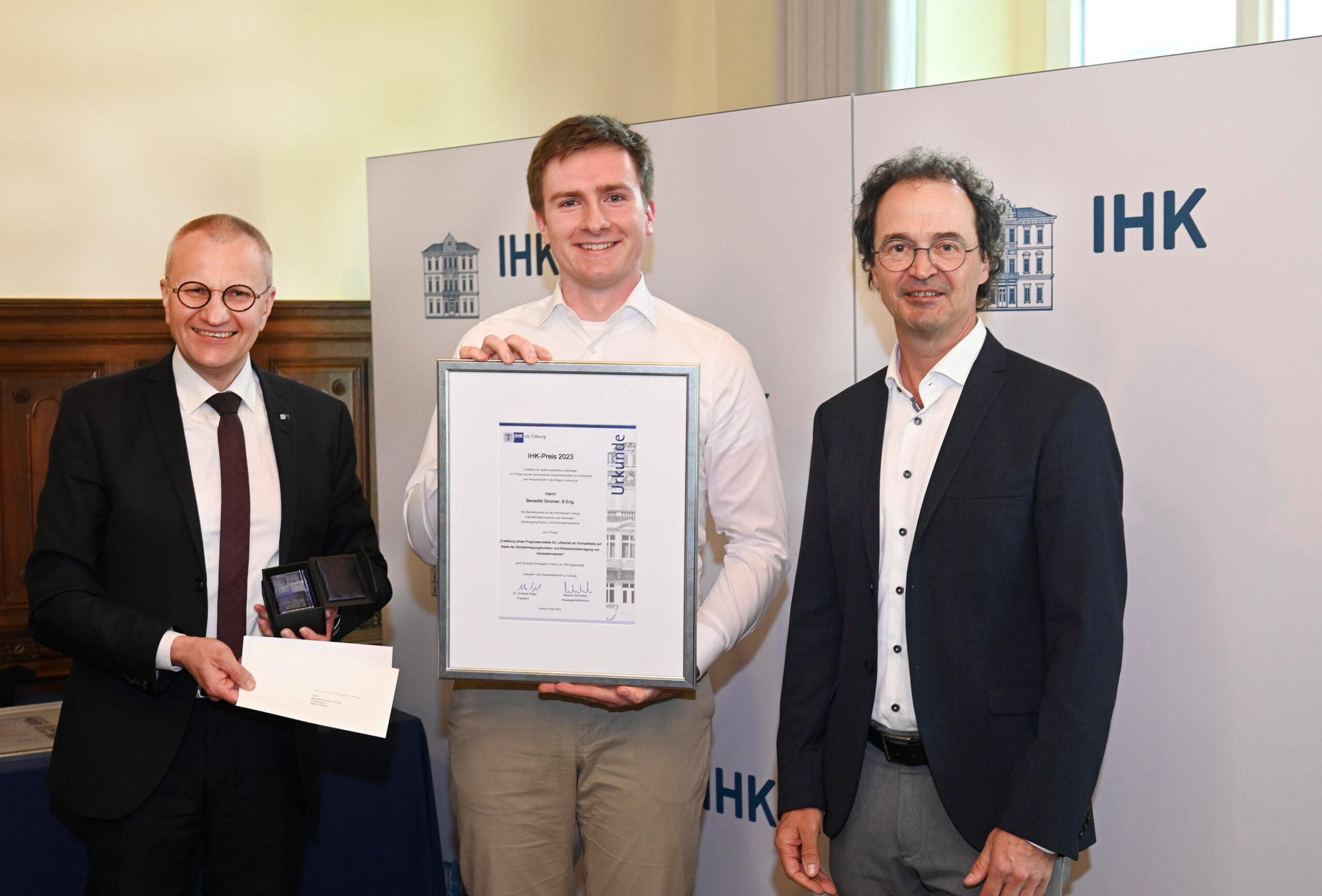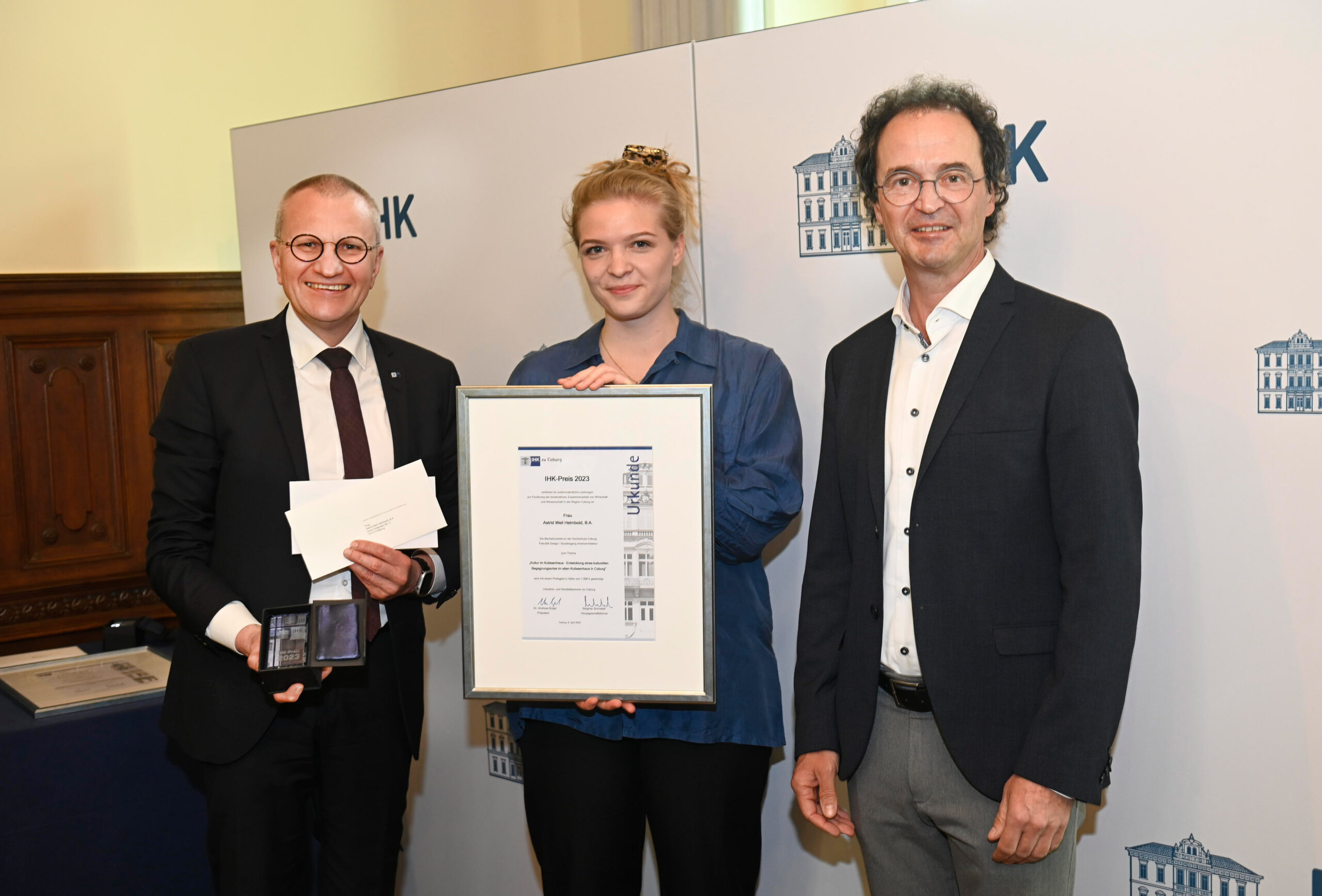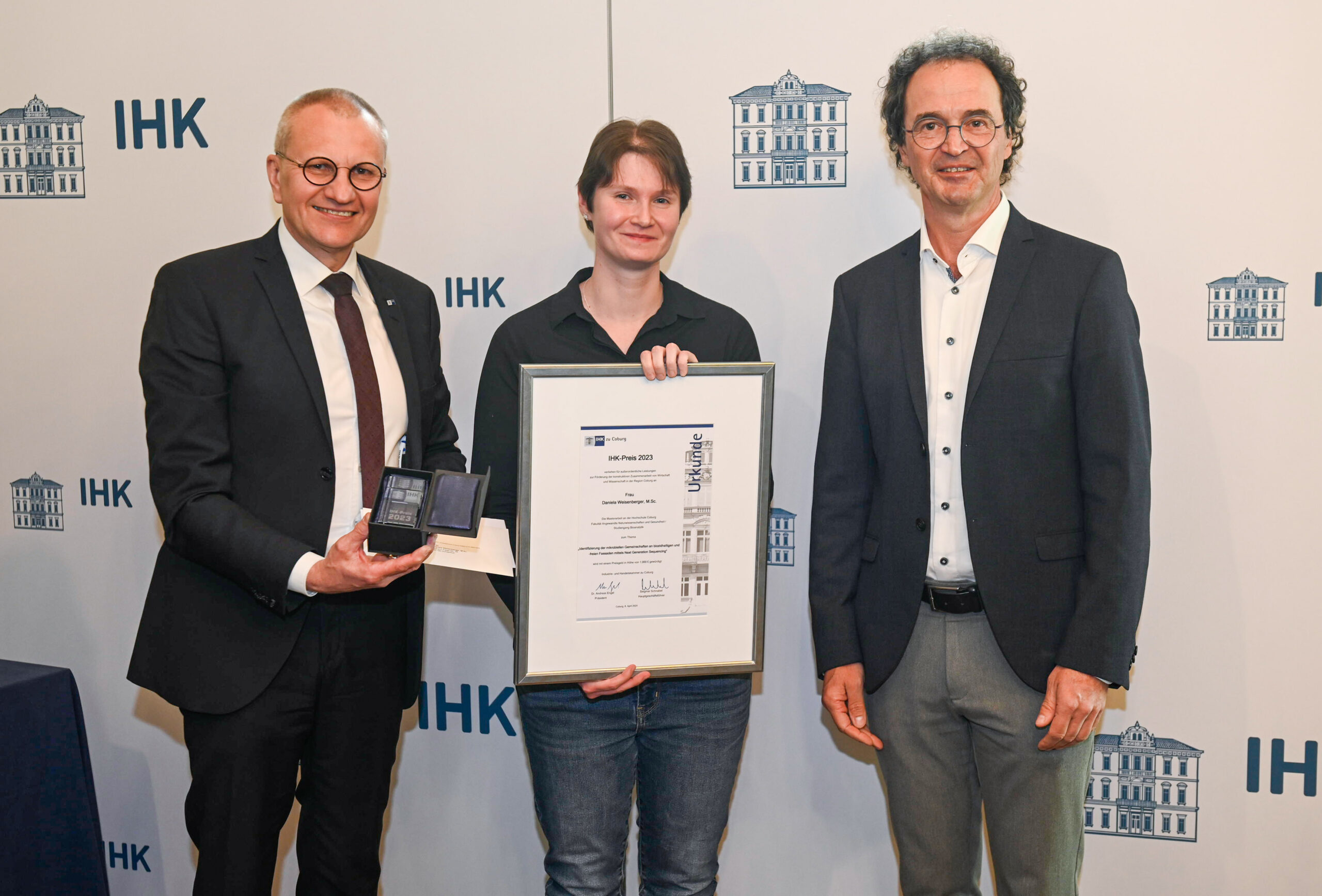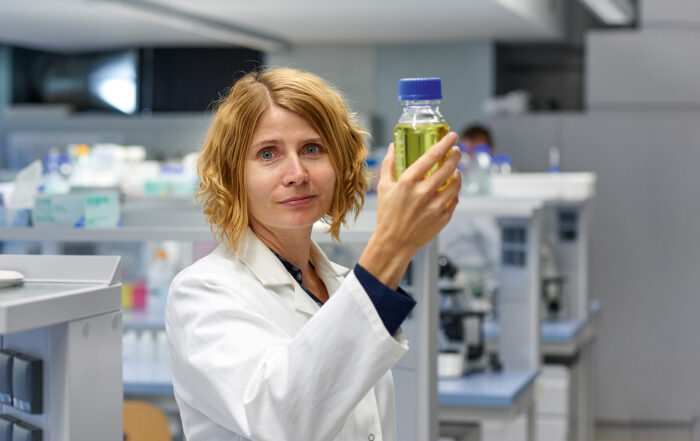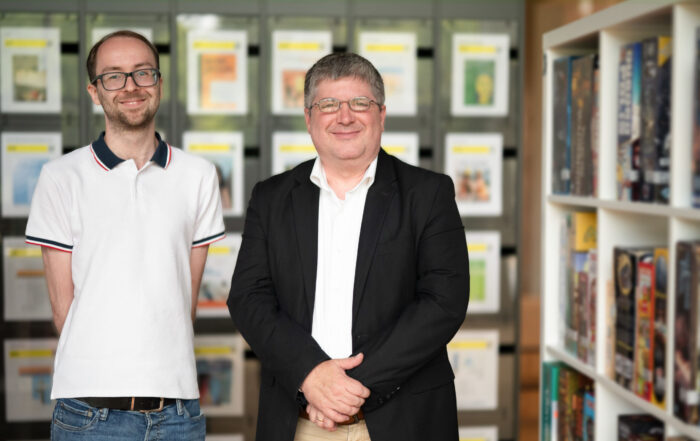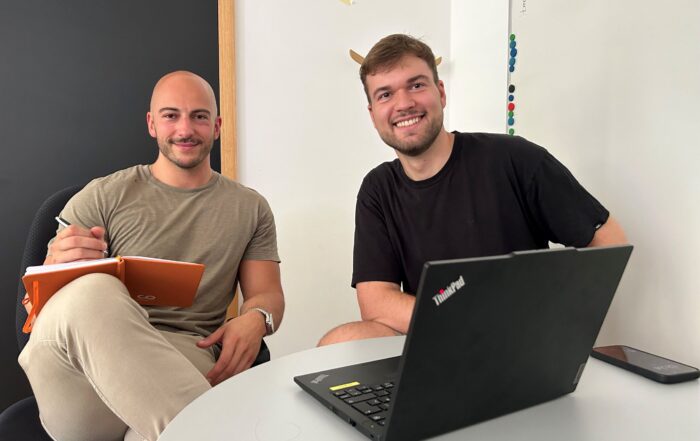8. May '24
The IHK Prize 2023 was awarded to the Bachelor’s and Master’s theses of six graduates from Coburg University of Applied Sciences: Matthia Leyendecker, Astrid Weil-Helmbold, Daniela Weisenberger, Patrick Brockardt-Riemann, Valentin Schäffer and Benedikt Stromer.
The Coburg Chamber of Industry and Commerce award for outstanding final theses at Coburg University of Applied Sciences was presented by IHK President Dr. Andreas Engel and Managing Director Siegmar Schnabel in a ceremony attended by invited guests at Palais Edinburg. Every year, the IHK General Assembly provides prize money to financially reward outstanding theses.
“This prize symbolizes the appreciation for academic excellence and the spirit of innovation that strengthens and enriches our region,” emphasized Dr. Engel.
And it is also a symbol of “the importance we attach to supporting our young academics”.
The Master’s thesis by prizewinner Matthia Leyendecker at the Faculty of Business Administration and Economics in the Future Design course makes a significant contribution to ergonomics in the workplace.
Her topic is “Conception and prototypical development of an effective system for the automated furnishing of the office workplace according to anthropometric aspects with the aim of sustainably improving individual ergonomics”.
This addresses the increasingly present problem of ergonomic design in modern office environments, which increasingly rely on flexible workplace concepts such as desk sharing and co-working.
Under the supervision of Prof. Dr. Barbara Kühnlenz, Leyendecker developed an innovative prototype for the automatic adjustment of desk, chair and monitor to the individual body measurements of the user, based on their uniquely recorded data.
Prize winner Astrid Weil-Helmbold excelled with a local topic: “Culture in the Kulissenhaus – development of a cultural meeting place in the old Kulissenhaus in Coburg”.
The interior designer ‘s study explores innovative ways of revitalizing this architectural gem in Coburg at the Faculty of Design with the aim of transforming it into a lively center for culture and art.
It is carefully preserving its original spirit by reinterpreting its character as a source of inspiration and a stage for cultural exchange and artistic expression.
By using the latest techniques, such as digital point cloud surveying, and taking into account aspects of monument preservation, she has succeeded in building a bridge between the past and the future.
Weil-Helmbold wrote her Bachelor’s thesis at the Faculty of Design in the Interior Architecture course under the supervision of Prof. Dr. Michael Heinrich.
Daniela Weisenberger’s Master’s thesis is entitled: “Identification of microbial communities on biocide-containing and biocide-free façades using Next Generation Sequencing”.
According to Dr. Engel, it is “proof that we can improve building protection and minimize environmental risks at the same time if we approach the matter with knowledge, creativity and commitment”.
Weisenberger succeeded in developing an innovative nucleic acid extraction method and establishing it in practice, making it possible for the first time to extract DNA from previously unexplored sample matrices – especially facades.
The work was carried out at the Faculty of Applied Natural Sciences in the Bioanalytics course under the supervision of Prof. Dr. Matthias Noll.
In his award-winning Master’s thesis, Patrick Brockardt-Riemann took an in-depth look at the Corporate Sustainability Reporting Directive (CSRD), a pioneering initiative by the European Union to harmonize sustainability reporting. It is entitled “Design and current status of the Corporate Sustainability Reporting Directive, a comprehensive sustainability reporting of the EU – with practical reference to the sustainability reporting of the Schaeffler Group” and was written at the Faculty of Business Administration and Economics under the supervision of Prof. Dr. Christian Wallasch.
By combining theory and practice, it uses the example of the Schaeffler Group to underline the importance and challenges of introducing CSRD, which also applies to companies in the Coburg area with more than 250 employees.
Award winner Valentin Schäffer completed his Master’s thesis “Simulative optimization of poses of stationary environmental sensors” at the Faculty of Mechanical and Automotive Engineering in the Autonomous Driving course.
Under the supervision of Prof. Dr. Georg Arbeiter, he focused on a key technology in the automotive industry and logistics: stationary environmental sensors for automated valet parking.
In order to achieve the goal of maximum coverage with a minimum number of sensors, Schäffer developed an algorithm at Valeo Schalter und Sensoren GmbH that represents significant progress in practice and is already being implemented in near-series projects.
Brose-Fahrzeugteile is an industrial partner of Benedikt Stromer’s bachelor’s thesis on “Creation of a prediction model for airborne noise on the complete seat based on the seat transfer function and structure-borne noise excitation of adjuster motors”, which was written at the Faculty of Electrical Engineering and Computer Science .
Innovative damping materials that minimize vibrations and thus noise are being researched, as is the integration of smart drive systems that enable smooth and low-noise adjustment.
Work is also being carried out on perfecting the design of seat components in order to reduce frictional noise.
This work was supervised by Prof. Dr. Peter Raab.


